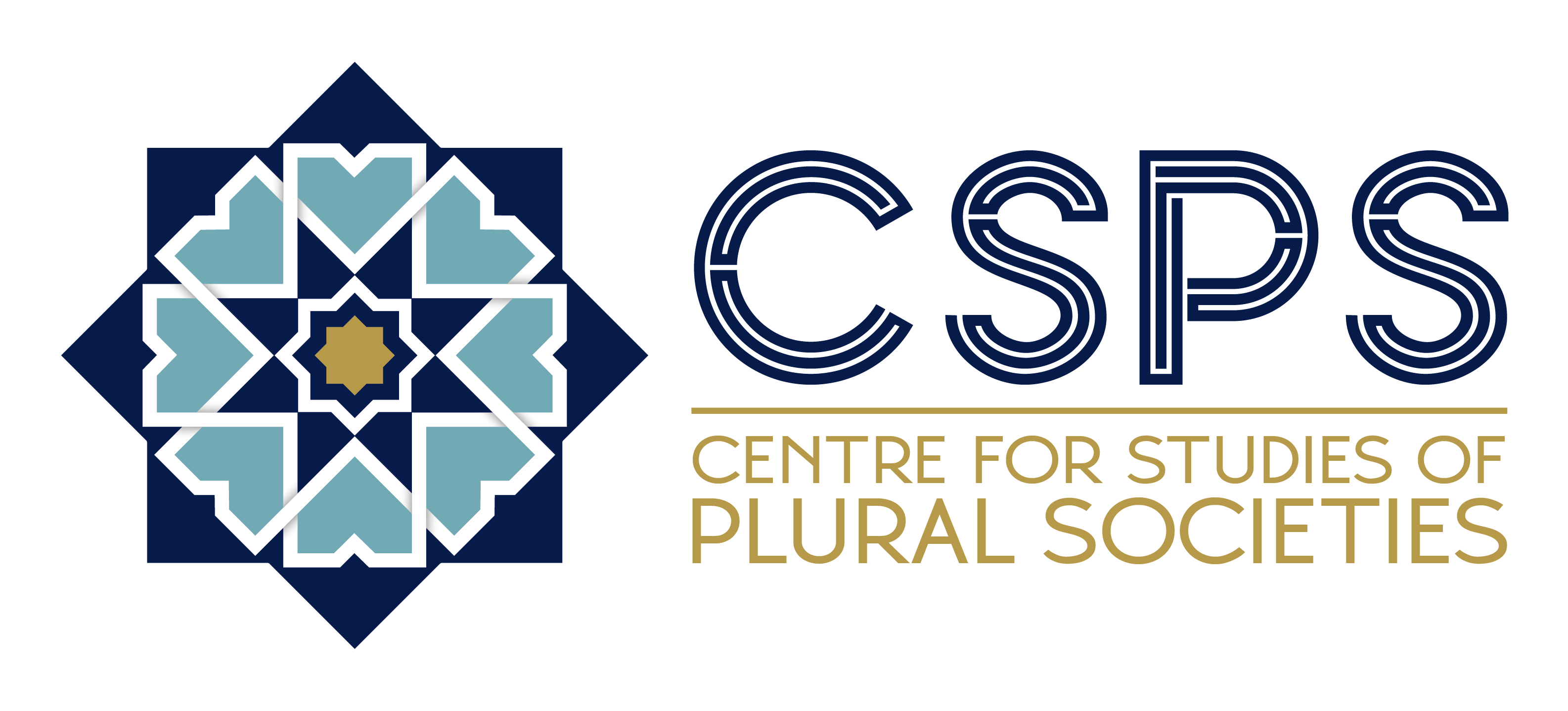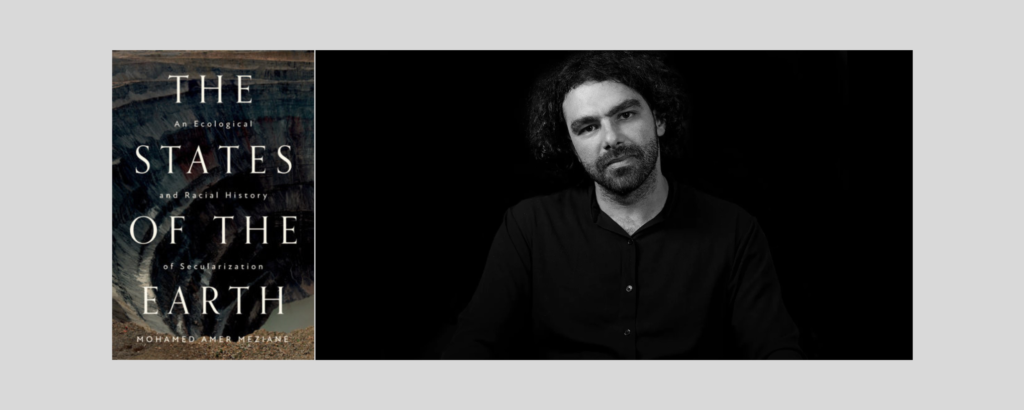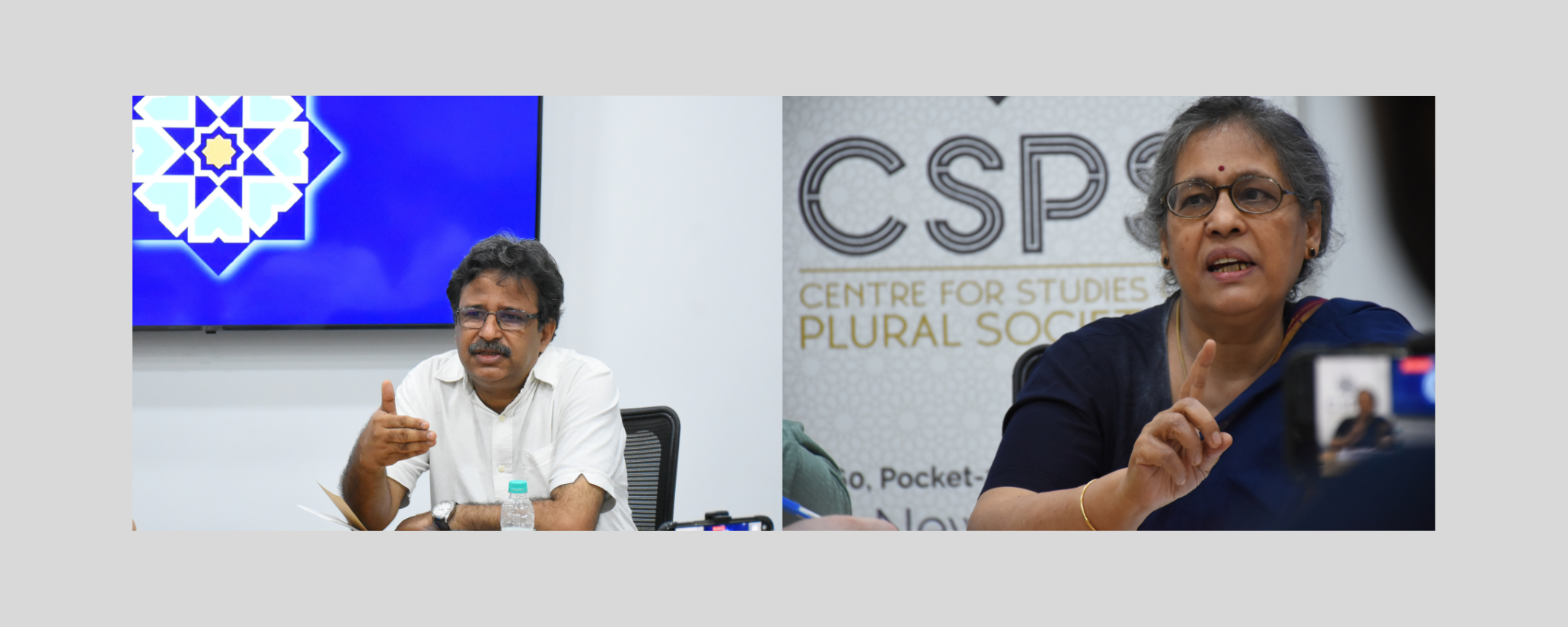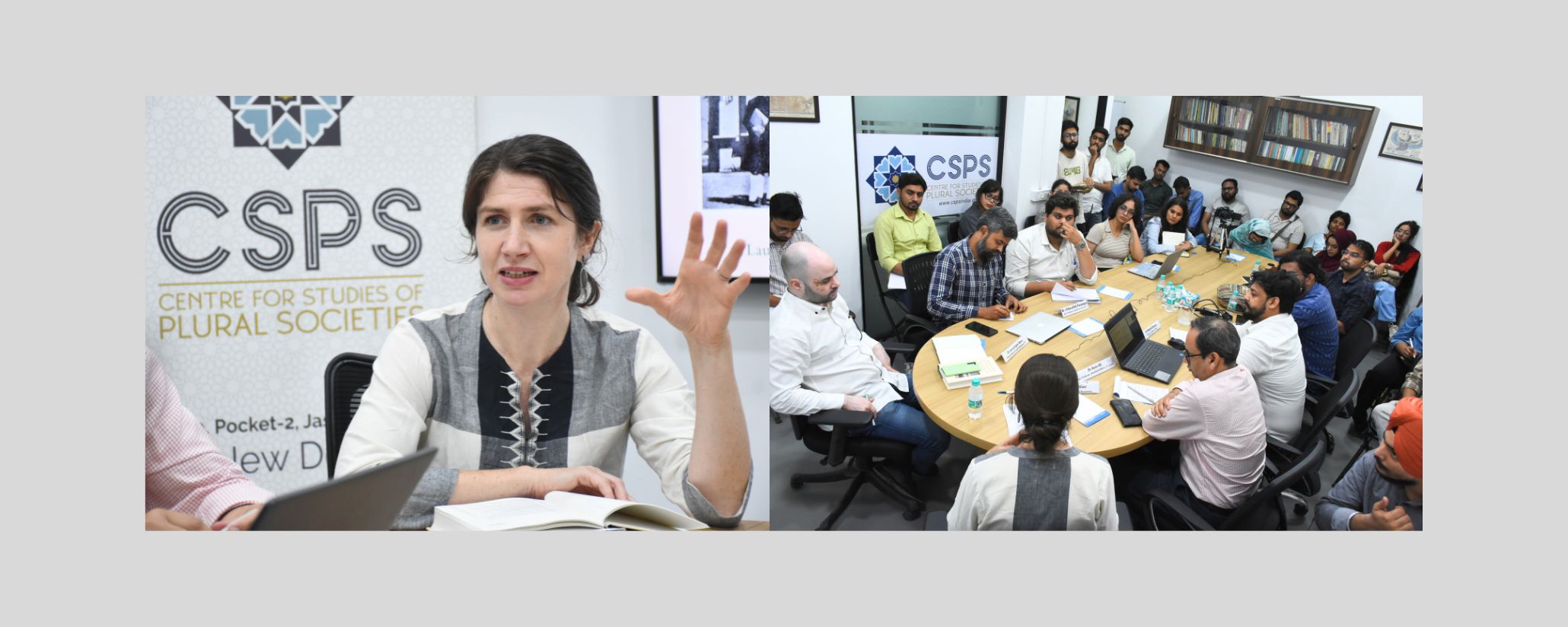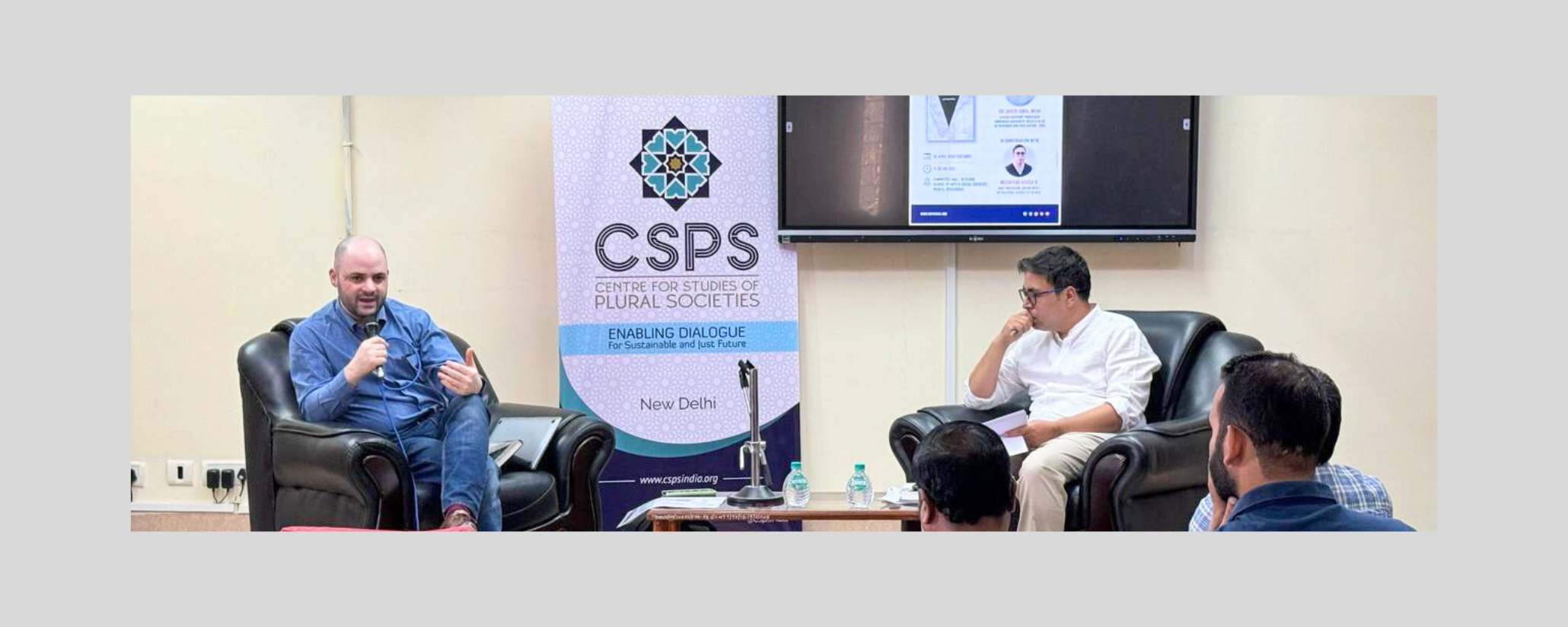Centre for Studies of Plural Societies (CSPS) organised a book discussion on “The States of the Earth: An Ecological and Racial History of Secularization” by Dr. Mohamed Amer Meziane (Assistant Professor of French and Francophone Studies at Brown University). The session was moderated by Dr. Azeemah Salem (Assistant Professor at JK Lakshmipat University, Jaipur and Visiting Fellow, CSPS).
Dr. Mohamed Amer Meziane commenced the session emphasising on the various intellectual traditions of continental philosophies that were linked to imperial and colonial histories. He discussed the French attempt to colonise Egypt in 1789, and how French colonial administrators sought to convince that the takeover of Egypt would serve as a launchpad to further French conquest in the Indian subcontinent once the Suez canal would have been secured. This reasoning was posited as an inter-imperial rivalry between the French and British Empire that would reshape the processes of colonial domination. Dr. Meziane went on to stress on the role of imperial fossilisation of the British Empire that based its reliance on coal and steam as a military strategy to extend colonial power. This meant that imperial war and the fossilisation of the economy was strategically crafted, such as with the deployment of steam vessels to expand colonial control, akin to how military roads helped stabilise the Roman Empire. ‘Fossil capitalism’ ensured that the logic of military colonisation was made efficient, with the help of colonial fossil technologies, to convince investors in joint stock companies that helped fund expeditions.
One of the significant themes of Dr. Meziane’s presentation included the aspect of “Secularisation”, which he emphasised by drawing parallels between the British Empire’s conquest of India and the Algerian colonisation by France. By situating Algeria as a predecessor of colonial technique, Dr. Meziane interestingly hypothesised how “secularisation” as a process was crafted as a counter-imperial strategy to further colonial domination. He posits that the principle of “religious freedom” and separation of religion from politics was designed as a means to thwart insurrection and rebellion against the Empire. This was aided by a ‘military-ethnographic complex’ that sought to racialise native populations and perpetuate an alternate understanding of social relations. In India, this meant colonial administrators backing themes of ‘Muslim violence’ casting Muslims as ‘masculine’ and ‘invaders’ onto a ‘native’, ‘authentic’ and effeminate Hindu population. The colonial historiography of reconstructing traditions and associating slavery and patriarchal practices with Muslims sought to justify colonial intervention and the deployment of colonial institutions.
Dr. Meziane goes on to state how the colonial empire eventually navigated themes of “secularisation”, drawing a distinction between the activities of missionary groups and colonial forces, in an attempt of ‘colonial compromise’ in its colonies. This took the form of categorising a section of Algerians as “Catholic Muslims” while in India conversion was limited and regulated leading to tensions between christian institutions and colonial administrators,Moreover, allowing for the space of the ‘secular’ to take root between them. Dr. Meziane drew upon colonial archives and speeches by administrators as well as Protestant leaders that sought to navigate themes of religion and domination, accelerating after the 1857 Sepoy mutiny, in an attempt to prevent further rebellion in the colony.
Dr. Meziane’s talk wasn’t just about the deployment of fossil technologies and religious activities in colonial territories, but also the transformation of approaches that imperial powers took to hold on to power and legitimacy. This also meant how Algeria warrants a significant mention in the discussions of postcoloniality, especially as it was the first Ottoman territory to come under the control of a Western power, eventually becoming a settler-colony that later dismantled its structure. The colonial techniques that were instituted in Algeria later led to other imperial powers refining and using them in colonies elsewhere.
The talk was succeeded by a Q&A session discussing the notion of Political Islam, the nationalised idea of Christianity and the creation of Modern states, fossil economies and the construction of secularised Christian societies. Dr. Meziane emphasised on the current political themes ongoing in France with reference to the surge in the Far-Right alongside discourses around the banning of the veil. He bases that a post-9/11 world warrants us to scrutinise the histories of the ‘West’ more vigorously, in order to trace the narratives that currently underline major political streams of thought. Dr. Meziane interestingly mentioned how French settlers who migrated to France after the defeat of French colonial forces in Algeria played an important role in the gradual consolidation of the Right-wing in French politics.
Dr. Meziane’s presentation was unique in the capacity that it encouraged the audience to deconstruct western narratives and to analyse the ‘Histories of the Global North’ with the perspectives from other parts of the world. He concluded that in order to interrogate the basis of the ‘Metropole’, it was imperative to write the history of the ‘Center’ from a perspective based outside of it, leading to a more nuanced understanding of contemporary political thought. It is only with this approach can one seek to interrogate the intricate manifestations and origins of colonialism, the climate crisis and fossil capitalism.
The report is prepared by Callistine Lewis, a research intern at CSPS
